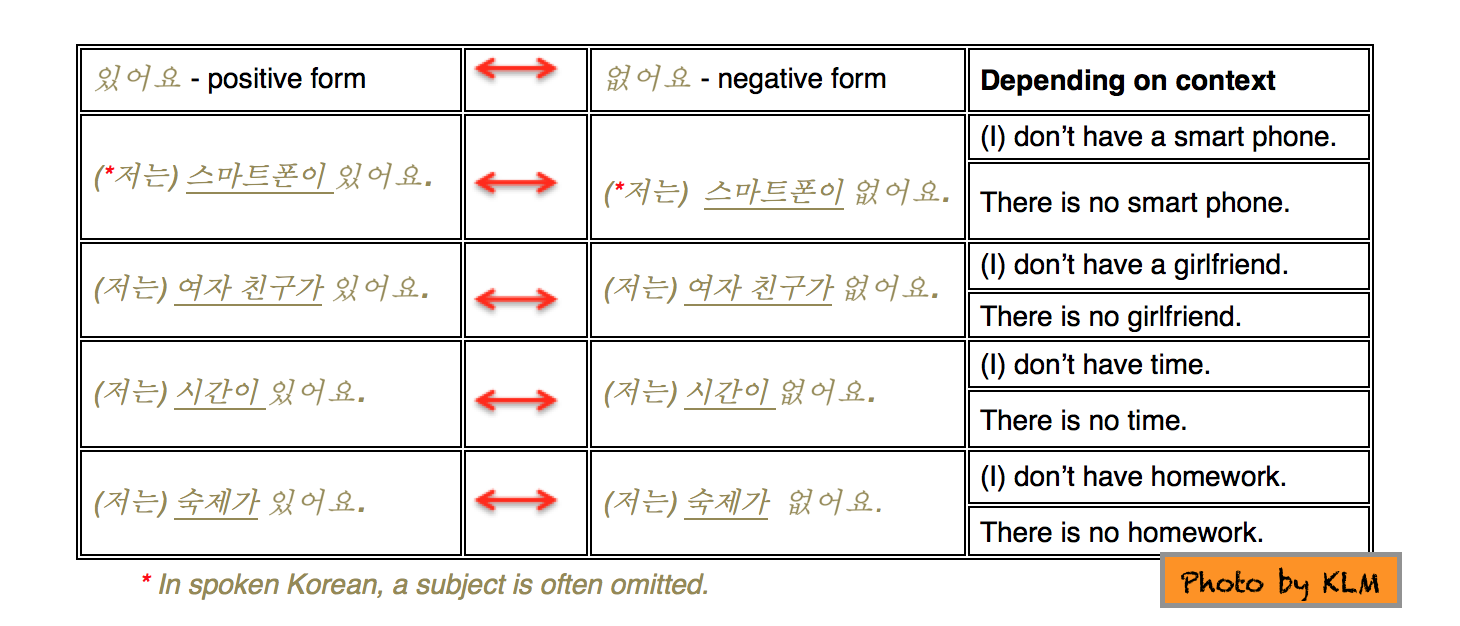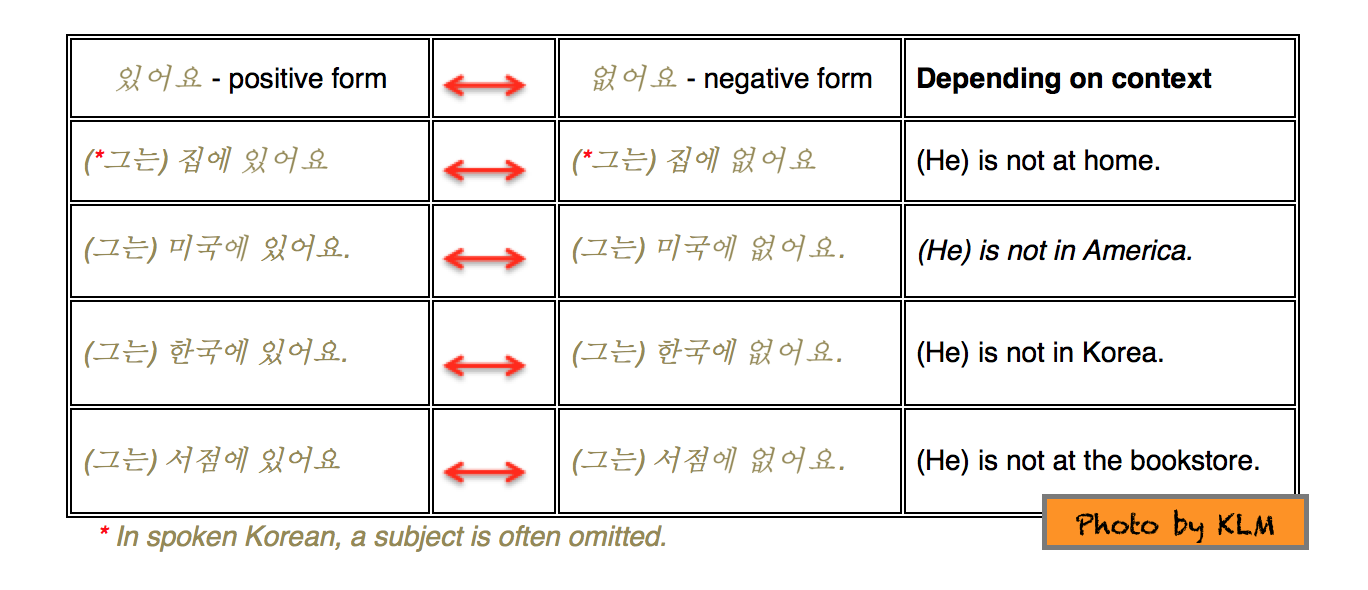없어요: Existence and Possession in Korean #2 Posted by Kyung-Hwa on Apr 19, 2017 in Grammar, Korean Language, Vocabulary
Last week I introduced the Korean word “있어요” which is used to indicate that you have something or someone in Korean. Additionally, “있어요” is used to describe the existence or location of something or someone. In the second post of the series, we will explore this Korean word, “없어요”, which is the opposite meaning of “있어요”.
Last week, you learned three different meanings of the Korean word, “있어요”. Depending on context, it is used:
1. to indicate the possession of something or someone
ex) 한국 친국가 있어요. (I have a Korean friend.)
2. to describe the existence of something or someone
ex) 수영장이 있어요. (There is a swimming pool.)
3. to give the location of something or somebody.
ex) 그녀는 학교에 있어요. (She is at school.)
In this post, we will explore a simple way to change a sentence with “있어요” into a negative sentence by using “없어요”.
When someone asks you, “_______이/가 있어요? (“Do you have/own _______?” or “Is there _______?”), you can simply answer the question either with a positive form “_______이/가 있어요” or with a negative from “_______이/가 없어요” in Korean.

When someone asks you the location of something or somebody such as, “Where is your boyfriend?”, you can also simply replace “있어요” with “없어요” to form a negative answer.

You will hear this crucial Korean word, “없어요” as much as “있어요” on a daily basis. In order to improve your fluency in Korean, I would like to encourage you to get familiar with the usage of these words within the context.
감사합니다! (Thank you!)
***Related Vocabulary***
- 있어요 (to have, to exist, or to be at/in)
- 없어요 (opposite meaning of “있어요”)
- 저 (polite word for “I” in Korean)
- 그 (he)
- 스마트폰 (smart phone)
- 여자 친구 (girlfriend)
- 남자 친구 (boyfriend)
- 시간 (time)
- 숙제 (homework)
- 미국 (America)
- 한국 (Korea)
- 서점 (bookstore)

Build vocabulary, practice pronunciation, and more with Transparent Language Online. Available anytime, anywhere, on any device.



